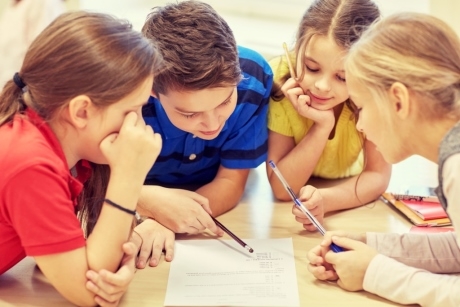
We look at ways to develop spoken and written English in Primary aged pupils through learning outside the classroom.
Recent research featuring in a scientific journal called Cognition (reported by the BBC) has suggested that after the age of ten, grasping the English language and grammar becomes much harder, therefore suggesting that it is in Primary schools where this learning is most vital.
New support has also been announced by Education Secretary Damian Hinds to help parents improve their children's early Language and Literacy skills before starting school. Besides this, there are many things that schools can do to boost Literacy skills too.
The four keys parts of learning any language is reading, writing, speaking and listening. These are all skills which can be developed both in the classroom and out.
For some students however, learning in a classroom environment is difficult and therefore we look at some school trip ideas that can aid Literacy skills.

Residentials and outdoor experiences
According to educational organisation Learning Away, many schools report seeing a positive impact on language after going on a residential experience. It also suggests that these kinds of trips are particularly useful for developing vocabulary and listening and speaking skills.
Many residentials and operators can tailor make trips, meaning you can choose to have a Literacy themed trip, with activities that tie into the curriculum. As well as developing these skills, residentials and adventure-based trips get children to push boundaries, experience new things, make new friends and grow as individuals. Often, speaking skills can suffer due to confidence, and these trips help build on that.
Developing language at attractions
Literature linked trips are a great way to further pupils’ interests in literature, reading and writing. A visit to The Bronte Parsonage Museum or The Roald Dahl Museum are good examples as they both run school workshops linked to Literacy. The Parsonage’s Scribblemania workshops for Key Stage 2 help children use their surroundings for Creative Writing exercises and use the Bronte sisters as inspiration.
Leeds Castle in Kent is another example and its A Potted History workshop not only teaches children about the History of the castle but gets pupils writing and acting out different roles within the castle. The drama side of the activity helps children develop their communication and speaking skills.
The Royal Mews in London also runs a Creative Writing workshop called Moving into Words which aims to strengthen students’ vocabulary and features a published author who the children can ask questions.
Learning English as a second language
There are many schools today who have students whose first language is not English. This can be tricky for teachers in determining the best ways to teach them the language and have the whole class be included too.
Many attractions cater for this. A prime example is Yorkshire Castle Museum which now offers two ESOL (English as a Second Language) workshops. During these workshops pupils will use objects they see around the museum to practice and develop their English vocabulary. This workshop, although for ESOL pupils, can also be useful for those pupils who struggle with English vocabulary and grammar.
A visit to a museum is a fantastic way of discovering new things and learning new vocabulary. Take a read of some great free museums you can visit as a school.










